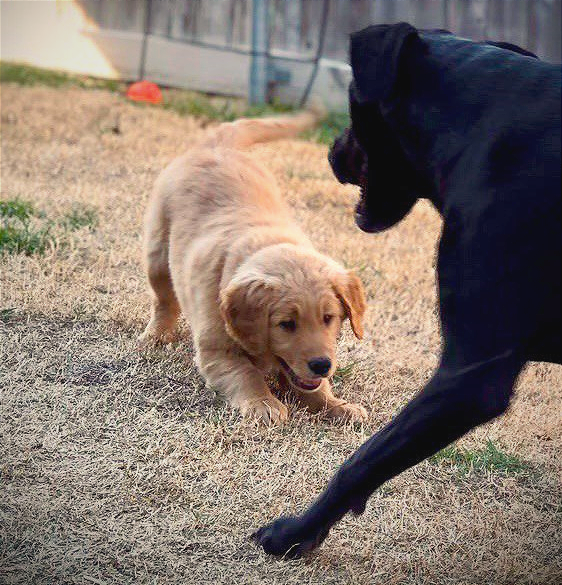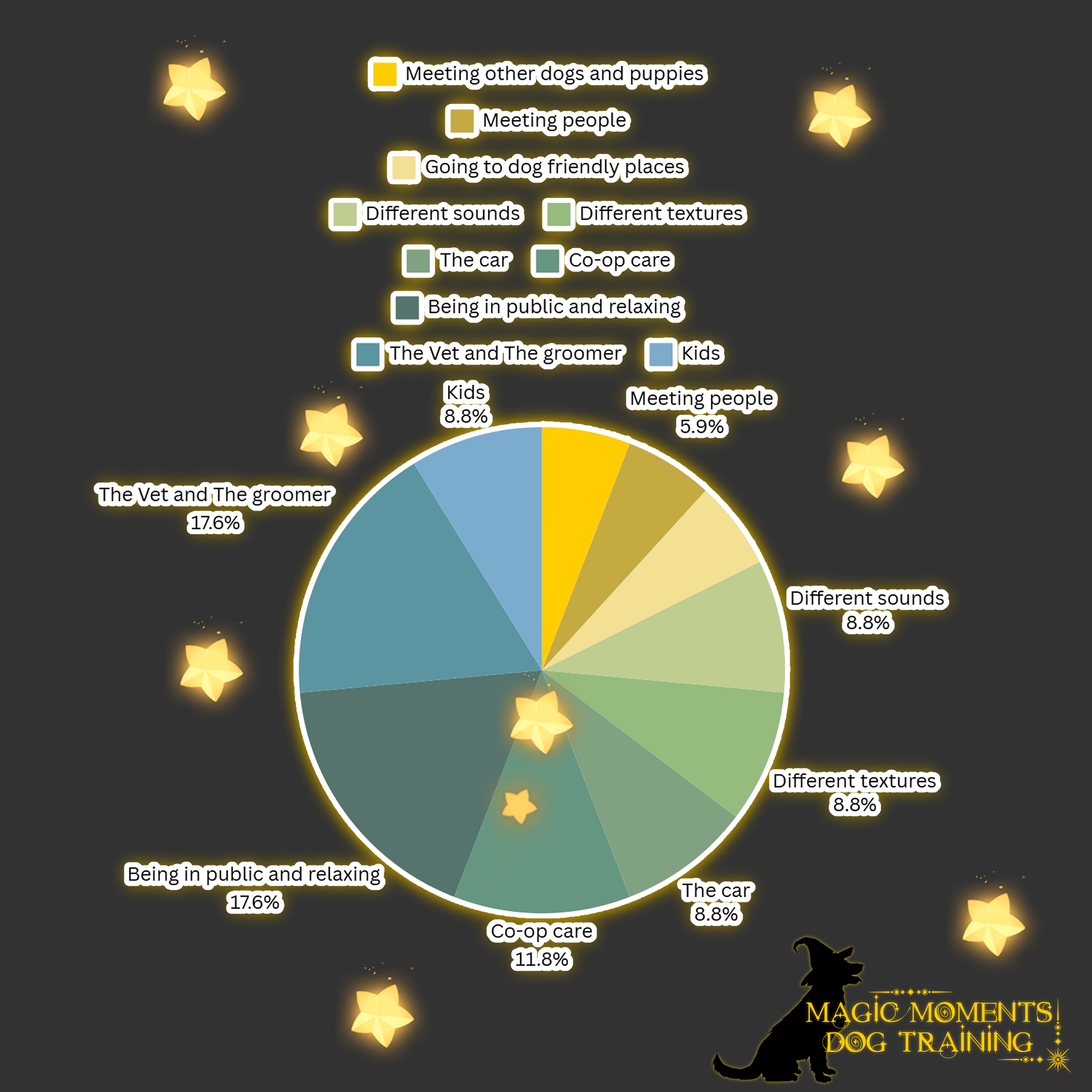Why Training is Important: The Truth
"Dog training is so much more than just tricks..." - Salem Luethy, CPDT-KA
Many people think training is some simple and optional thing. It's tricks like shake and roll over, and those are great and fun things you can teach your dog, because they would love it and so would you.
"I don't need my dog to jump through hoops!"
But training is so much more; it's connection, understanding. It's rules and boundaries. It's communication. It's confidence. It's time and patience your dog deserves.
Why is Dog Training Important?
Dog behavior is one of the largest, if not the largest, contributing factors to abandonment or surrender. Investing a little time in training now can save you a lot of frustration and stress later.
Proper training helps prevent many common issues that develop as dogs grow, from reactivity to destructive behaviors. It can even curb or eliminate aggression before it starts. Beyond that, training fosters a deeper connection and bond between you and your dog, one that lasts a lifetime.
Safety First: The Lifesaving Impact of Training
Training is more than just good manners—it can literally save your dog’s life. Door manners and boundary setting, for example, can help prevent accidents like being hit by a car or getting into altercations with other dogs. It can even reduce the likelihood of your dog getting lost.
Leave it - Learning to ignore dangerous things, from dangerous food dropped on the floor, like Grapes to reactive barking and chasing cats.
Drop it - Spitting out things they may have that could be dangerous.
Confidence Through Training
Training also builds confidence. Basic skills and socialization help alleviate anxiety and nervousness, whether it's separation anxiety or fear of going to the vet. Some dogs are overly friendly and jump on everyone, while others are shy, running away or cowering. Training provides understanding and structure for both types of behavior.
Your dog doesn’t know how to act in certain situations, so sometimes they do what works best for them, and they will continue to do that until they learn otherwise. That comes through training.
Training = Understanding
Imagine traveling to a country where you don’t speak the language—Japan, for example. You sit down at a restaurant, but the staff doesn’t speak your language, and the menu has no pictures. You’ve been out to eat thousands of times, but now, in this unfamiliar setting, you feel anxious and out of place.
Now, imagine you did understand the language. You’d feel comfortable ordering food, just like you always do.
That’s what training does for your dog—it teaches them a language. It fosters communication, eliminates uncertainty, and builds confidence. It gives them the tools to understand what you want, what they should do, and how to navigate the world around them.

Training Helps Socialization
Socialization is key, and training plays a huge role in this. If a dog isn't exposed to other dogs early and doesn't learn proper social cues, they might struggle to interact with other animals.
And not just other dogs. Early socializing is paramount in a dog’s development, socializing is so much more than just meeting other dogs. It’s people, textures, sounds, sights, smells… Experiences.
All of that comes together to form one well balanced dog

But training is helping your dog to understand how to react to those things. Training provides redirection cues that help your dog during moments of overstimulation. If your dog isn’t picking up on cues from other dogs, or even from other pets like cats, training allows you to step in and guide their behavior.
Beyond Basics: The Power of Training
Training can take your dog beyond the basics, transforming their role in your life. From search-and-rescue dogs to service dogs and therapy dogs, it’s incredible what dogs can learn. Even if you don’t need your dog to perform these tasks, it’s amazing to think about the potential that lies within them. Giving them the gift of understanding, even at a basic level, is an opportunity no dog should miss!
Improve Your Dog’s Quality of Life—and Yours
In the end, training improves the overall quality of life for your dog, and for you too. It can alleviate stress for both of you.
While it takes some work at the beginning, the long-term benefits are immeasurable.